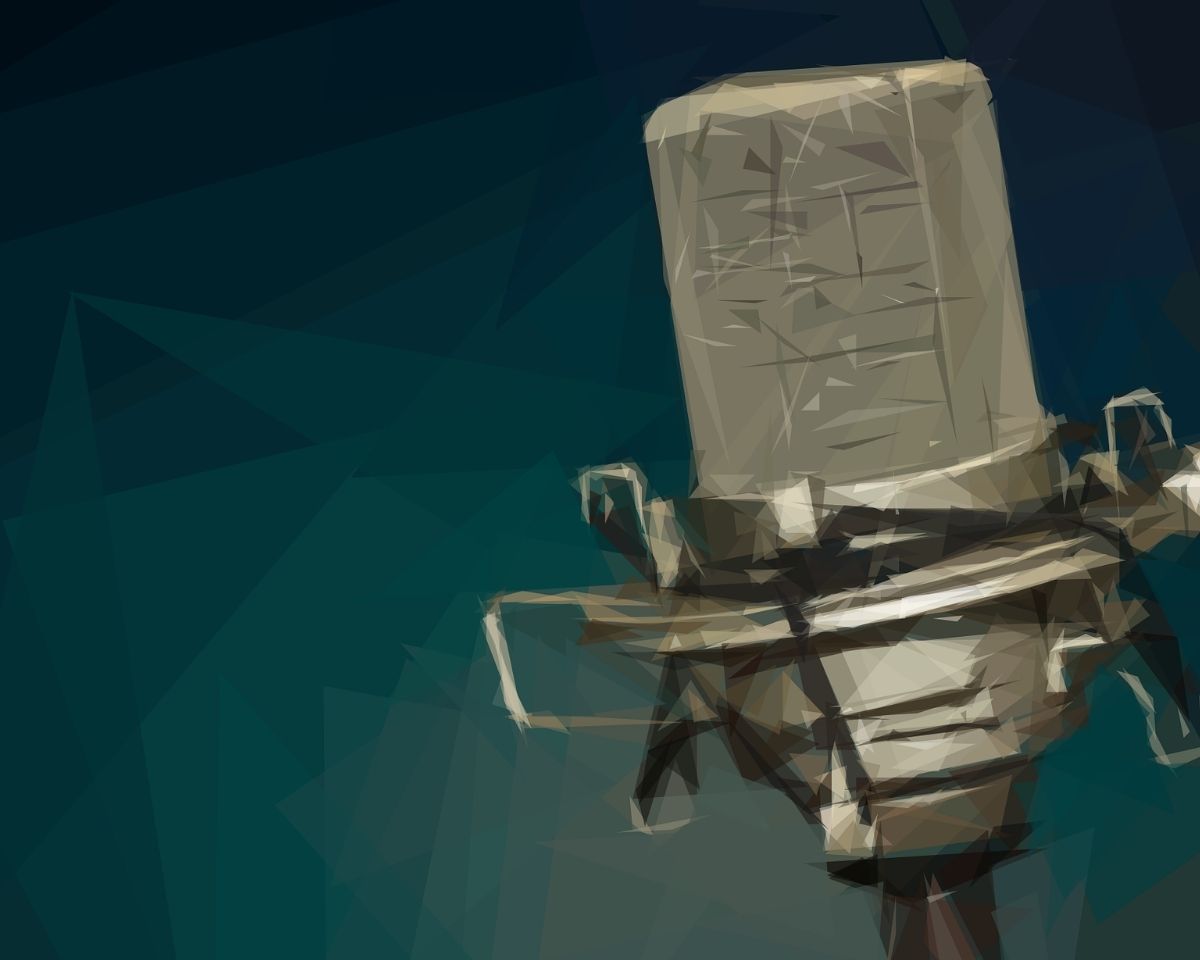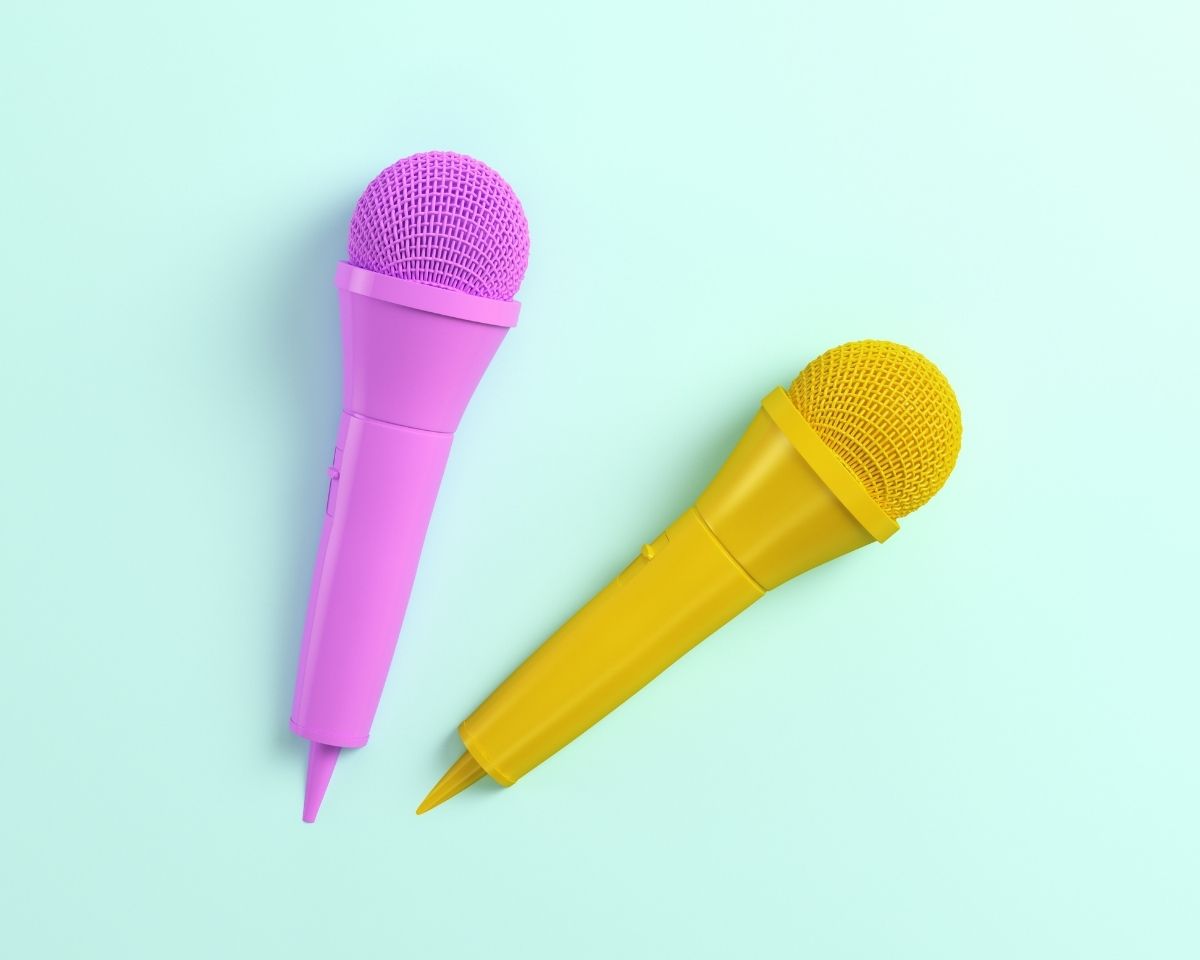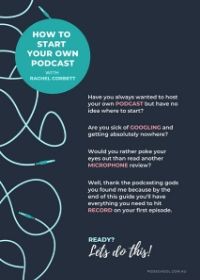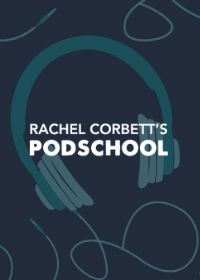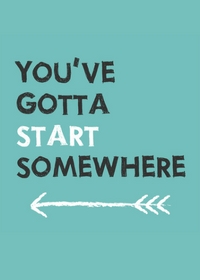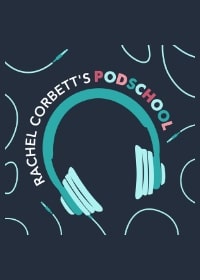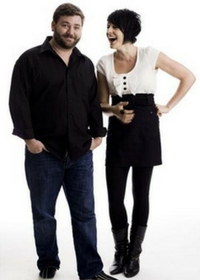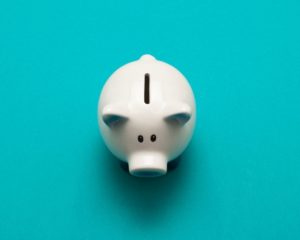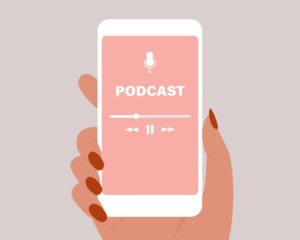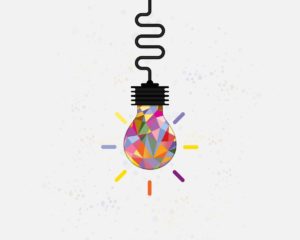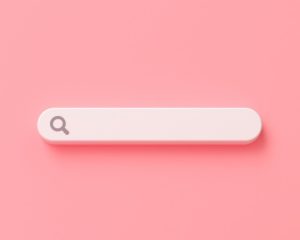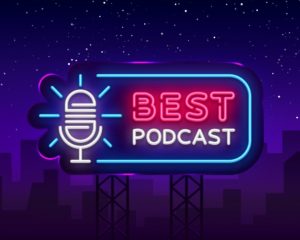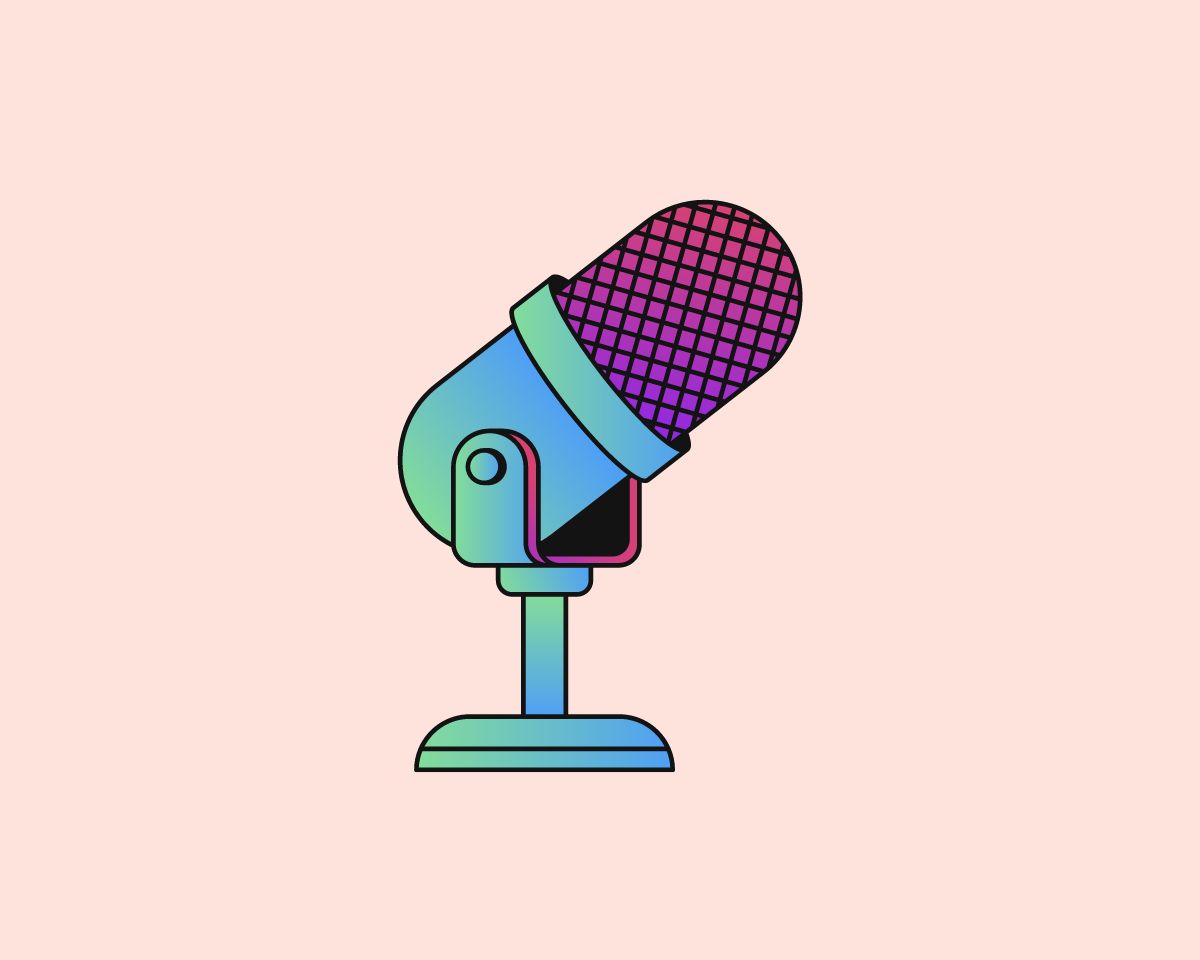
My top podcast microphone recommendations…
When you’re kick-starting your podcast it can be hard to know what equipment to buy because there’s so much out there. Particularly when it comes to one of the most important items in your kit…your podcast microphone.
So, here are a few of my top podcast microphone recommendations…
But before we get to that…think about where you record
Before we get into the recommendations it’s important to point out that your recording environment has a HUGE impact on the quality of the audio you record.
You could have the best microphone in the world but if you’re recording in an echoey space, or somewhere with a lot of distracting room or background noise it’s going to sound rubbish.
When you’re recording your podcast you want to avoid rooms with reflective surfaces like tiles, windows or high ceilings. This is because your microphone will pick up the noise of the room you’re in so if you’re in an echoey space there’ll be a lot more ‘noise’.
That will not only be distracting, but you’ll also sound a million miles from your audience (which isn’t a good thing).
What’s the difference between a condenser and a dynamic microphone?
If you’ve been researching podcast microphones you might have come across these two words – condenser and dynamic.
A lot of articles go into more detail than you’d ever need so here’s what you need to know…
Condenser microphones
These give a “richer” sound, which sounds like it would be better but actually, these microphones work best in a professionally soundproofed environment.
And this often isn’t the kind of space most podcasters are recording in.
If you’re podcasting in your home office or loungeroom these mics aren’t great because they’ll pick up a lot more background noise than you want.
You’d be forgiven for thinking “well they’re more expensive so they must be better!”
But when you’re starting out a dynamic mic will usually be the best way to go.
Dynamic Microphones
These are great if you’re recording in a space that isn’t soundproofed because they produce high-quality audio but don’t pick up as much background noise.
You still need to make sure your space is as good as it can be though. So don’t think you can get away with recording in your kitchen just because you’ve got a dynamic microphone.
(Please never record in your kitchen).
My top podcast microphone recommendations
Audio Technica ATR 2100/2100x
Note: Audio Technica have discontinued the 2100 model and the new version is the ATR 2100x which has a USB-C cable as well as USB and is slightly more expensive.
This is the podcast microphone I pack with me when I’m travelling and I don’t want to take my full kit. It can be connected via USB/USB-C or XLR cable which means you can plug it directly into your computer or an external recording device/mixer if you want to record that way.
To hear this mic in action check out this episode of a podcast I hosted called Bach Chat (yes, I once got paid to talk about the Bachelor).
This was recorded in a hotel room on the ATR 2100.
Samson Q2u
This mic looks almost identical to the ATR2100x and is also a USB and XLR microphone but it’s slightly cheaper.
I’ve had a lot of people say they prefer this to the ATR 2100x but it’s all about personal preference.
Shure PGA58
This is the microphone I’ve used for years and I absolutely love it.
It’s an XLR microphone so you can’t plug it directly into your computer but if you’ve got a portable recording device like a Zoom H6 or another audio interface you can use that as the middle-man between your mic and your computer.
These mics are also great to take out on the road and I’ve recorded interviews for my show, You’ve Gotta Start Somewhere in hotel rooms and echoey spaces and the result has been fab.
Shure MV7
This mic is slightly more expensive but does record really high-quality sound.
Again, where you record will be really important but this is usually my go-to mic to send out to remote podcasters who are recording shows for Nova Podcasts where I’m Head of Podcasts.
Which mic you go with will always depend on your budget and your personal preference so make sure you choose the one that’s right for you!
Got a burning podcasting question you’d like answered? Send me an email.
Want to start your own podcast but need a little help? Download my “How To Start A Podcast” guide or sign up for my online podcasting course, PodSchool.
Hello and welcome to the show. Last week I was talking about how you record a podcast and today, as promised, I'm going to talk about microphones. I will warn you and say that I am not going to give you 700 microphone options in this episode. I am going to only recommend the ones I have personally used because sometimes I find with podcast recommendation articles as the list can go on and on ad infinitum. And if you are starting out it's very hard to work out which of these 700 microphones is actually the best one for me? I find if you're beginning it is best to have fewer options so I will tell you why I like each of the recommendations that I am going to be batting up today in the episode. The first thing I want to say about microphones is that they are absolutely essential if you want a high-quality podcast. The microphone you use is going to be one of the most important factors in whether or not your show sounds good. There are some other things around that obviously but in terms of audio quality recording on a high-quality microphone is often the difference between it sounding like you are a professional operation and a two-bit operation that's just wheeled into podcast town and given it a crack. So obviously if you want your show to compete how it sounds is one of the most important things in that. The content is obviously essential but you can have the best content in the world and if it sounds grainy and crackly, people aren't going to stick around and listen.
The other thing that's essential is where you record and the environment that you're recording. You can have the best most expensive mic in town and if you are recording in a toilet it's going to sound crappy. You really have to make sure the environment you record in is as conducive to high-quality sound as possible and that means staying away from reflective surfaces or big echoey rooms, high ceilings, windows and tiles.
I am recording right now in between three couch cushions. I just put a couple in a little triangle and then one on top so that I can create a little dead space for the audio. This is because I rent and I can't create an independent voice-over booth in my house. I also find this super simple. I chuck it up, sit in front of it, record and it removes any of the echo in the room and makes things sound much higher quality. So you don't need to spend a lot of money decking out a home studio or dedicate an entire room to being your voice over booth. You can do it in a way that means you set something up quickly and dismantle it again. But it is really important because a great microphone will pick up more of the sound of the room and if you sound like you're in an echoey space that's not going to be great quality. The more echoey it is the further away you are from your audience and you really want to be right up close and personal in their ears. That means getting as intimate as possible. You need to get close and echoey large rooms are going to make you sound far away to your audience.
The other thing I'm going to mention super briefly is two words condenser and dynamic. There are two types of microphones that often get referred to in podcasting - the condenser microphones and the dynamic microphones. Often people go into a world of detail that you do not need so I'm not going to explain in depth the inner workings and the vibrations of membranes and whatever else. I'm just going to say very very simply the difference between the two that matters to you is that a condenser microphone is something that you would use if you had a serious studio set up. It often requires power to the microphone so you can't use it unless it's plugged into a power source but the thing that's really important to note with a condenser microphone is it provides a really rich sound but that also means that it picks up a lot of the surrounding noise in the environment that you're recording in.
So if you are in a radio studio that is designed to have dead sound and no echo. Something that is set up for studio quality audio then a condenser mic is fantastic but if you're just recording in your home studio and you're trying to get rid of some of the echoey noise but it's not a perfect space than a dynamic microphone is going to be better for you because it's not going to pick up as much of that surrounding sound. So that's really all you need to know between the two. When you're starting out a dynamic microphone is probably going to be the best option if you're recording at home. Some people say the sound is less rich. I am currently recording on a dynamic microphone and I think this is fine. The rich sound sometimes is one of those extra levels of audio quality you need in an ad or a voiceover but when you're trying to be intimate and present with your audience I think a dynamic microphone is fine. Particularly because most of us are recording at home so you don't want to pick up those extra sounds of the neighbourhood or the environment. So which microphones do I recommend? I'll take you very quickly through a few that I have used. The first is the simplest and the cheapest it's called the Audio Technica ATR2100. If you have been researching podcasts you would probably have seen this recommended a million times. I have only recently used it to record a podcast and on the show notes page (head to PodSchoolPodcast.com and search "microphone" in the search bar) I'll pop an embedded player of an episode of a podcast I recorded with this microphone.
I will almost always record on the microphone I am recording on right now, which I will take you through in a moment, but I was travelling and forgot to pack my kit and I desperately needed a microphone in five minutes. So I raced to JB Hi-Fi and grabbed it. It was AUD$95. I plugged it directly into my computer and away I went. It's an awesome mic to travel with. it's really light. It's also got an XLR option which is the little three-pronged plug that you plug in if you're using a mixer or a portable recording device like a Zoom so it's versatile. You can use it for other things rather than just plugging it into your computer but it's really simple, cheap and it works well. So have a listen to the audio on the show notes page so can get a sense of what it sounds like.
The second microphone I'm going to suggest is this one that I am on right now. It's a Shure PGA 58. I have been recording most of my podcasts on this for years and I find it excellent. The only thing is it's not for plugging into your computer it's only for using if you have a mixer or what I use, which is the Zoom H6. I record all of my podcasts on a portable device. I prefer it because I've had too many podcasts crash midway through while I've been recording on my laptop. I find the Zoom super reliable, portable and easy to use. The mic quality of the PGA58 is really good so that's my top recommendation.
The other microphone I have at home is the Rode Podcaster. Now, this is quite a big microphone. It's dynamic and it's also a USB microphone so it plugs into your computer. It comes with like a boom arm which is this big thing that you attach to your desk and it looks like you're in a radio studio at home. But really it's not a mic you can move around. You can buy a stand for it but it's kind of big and a bit clunky I wouldn't travel with it. I just attach it to my desk and I often use it to record video rather than podcasts because I can't get any little voice over a box around it because it's too big and cumbersome. That's why I use my PGA 858 because I can wrap some couch cushions around it and create a little dead space to record but I can't necessarily do that with the Rode Podcaster. If you're recording in the right room and it's not full of reflective surfaces you can get a really good sound out of this mic and I'll often record a lot of my videos using that.
There are a bunch of other microphones that people recommend but those are the ones that I have personally used and I think they are great. They do the job and they're not super expensive.
Some people recommend mics that are getting up to the $300-400 dollar mark. If you are kicking off your podcast they are not the things you need to be thinking of. Of course, as you start to get better and better with time you can think about improving your gear and getting better stuff. But I've been doing this for over 16 years and I still record into a little PGA 58 that cost me about 80 bucks so that $500 mark isn't necessary unless you just love gear and in that case, I'd read some reviews and see what resonates with you. But certainly, those microphones, when you're kicking off and even well into the success of your podcast, will serve you really well.
I hope that's helped you work out what kind of mic you need to record your podcast. If you need a little more help with your show, of course, you can head to PodSchool.com.au which is my online podcasting course and if you're finding these tips useful or have friends who want to start their own podcast please pass this show on and leave a review wherever you listen. Thanks so much for joining me. I'll see you next week and until then, happy podcasting.
